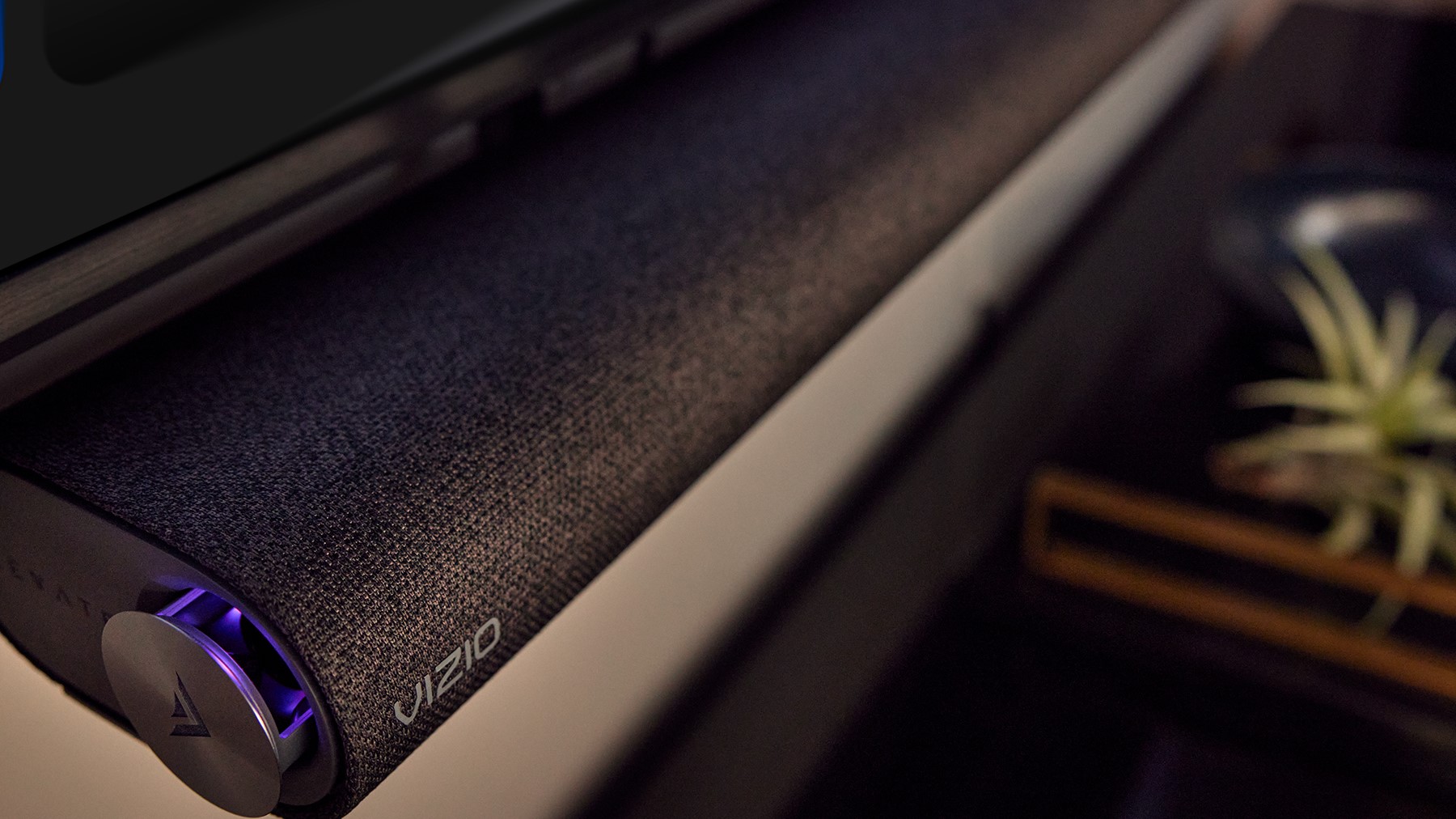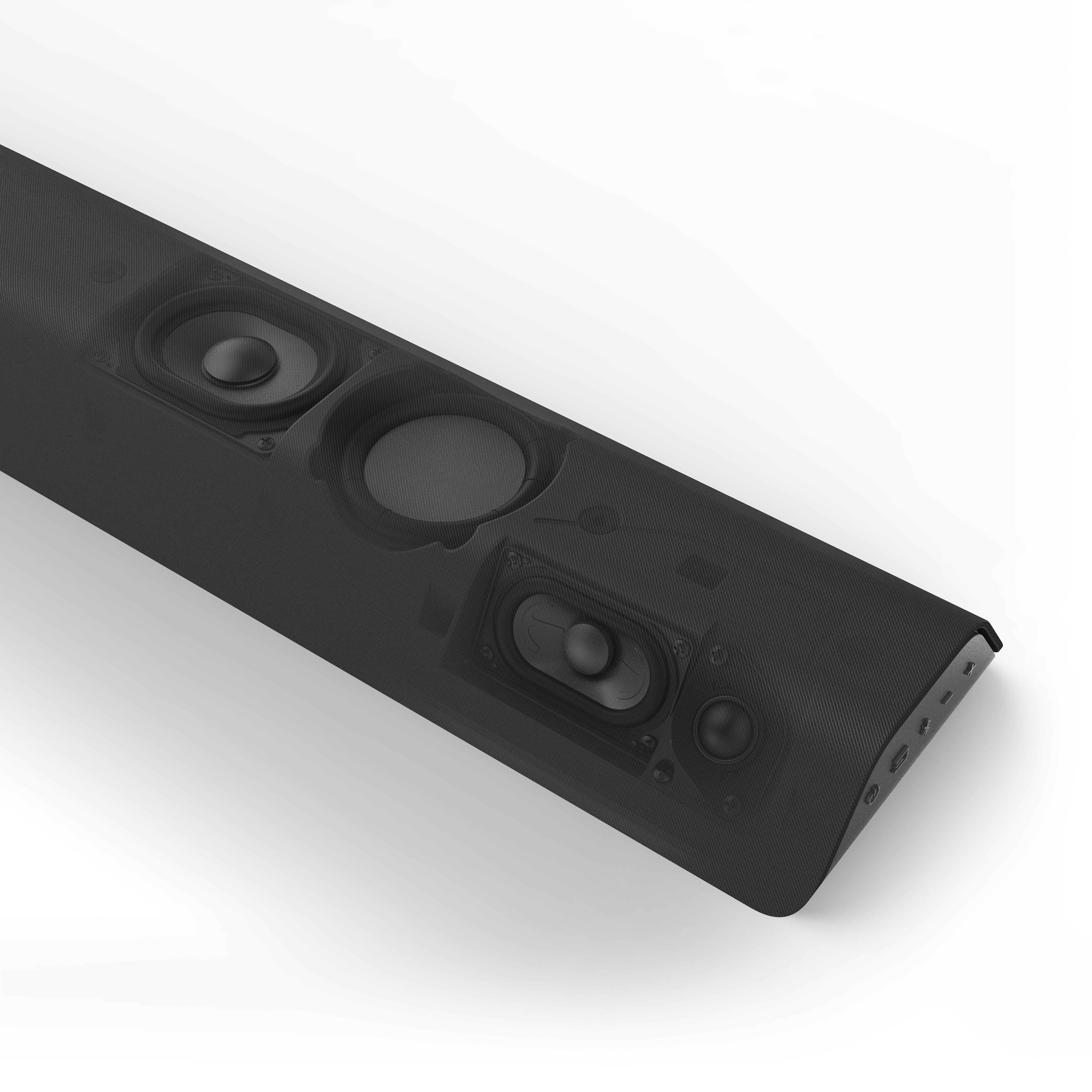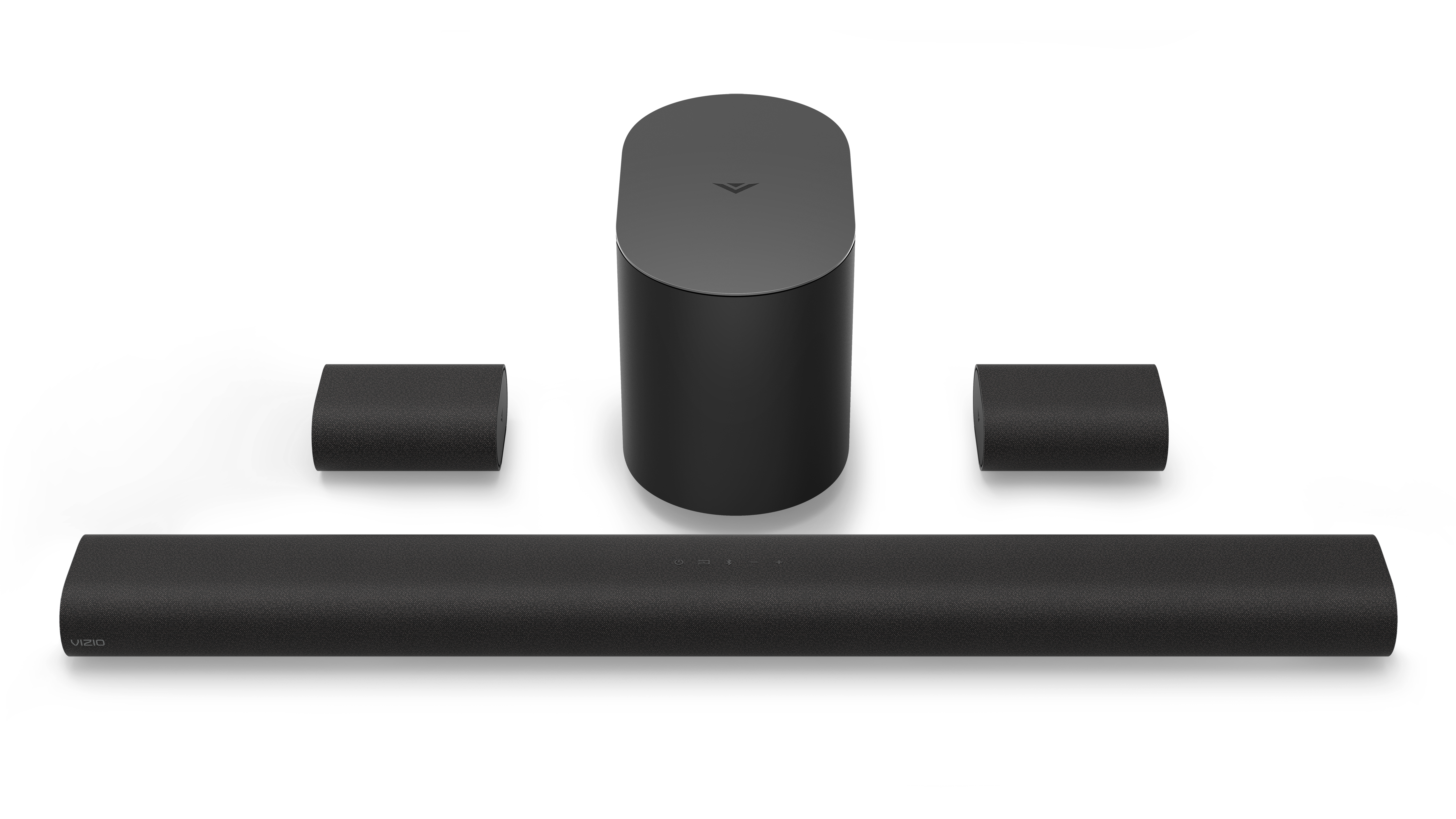Vizio’s cheaper Elevate Dolby Atmos soundbar puts the Sonos Arc on notice
The brand's new bars include a less pricey flagship and an entry-level Atmos option

Budget TV maker Vizio has announced its new M-Series soundbar lineup for 2022-2023, with the update led by the M-Series Elevate, a less pricey version of the original but with the same swiveling Dolby Atmos height speakers.
Like many of the best soundbars, the new $800 M-Series Elevate is a 5.1.2 model, and it comes with wired surround speakers and a wireless subwoofer said to deliver bass down to 45 Hz. Like its predecessor, it has speakers at the bar’s outer edges that automatically rotate up for Atmos and DTS:X duty, and then rotate back down to contribute to enhanced playback of regular surround and stereo sources.
Connections on the M-Series Elevate include HDMI eARC and regular HDMI ports with Dolby Vision HDR pass-through plus an optical digital audio input. When linked to a Vizio TV using HDMI eARC, an integrated sound bar control menu lets you configure the Elevate’s settings on the set’s screen, and there’s also a voice assistant input for connecting a Google or Amazon Alexa speaker.

M-Series All-in-One: Dolby Atmos for $200
Along with the Elevate, Vizio also announced the M-Series All-in-One, a 2.1-channel soundbar offering Dolby Atmos support for just $200.
Atmos and DTS:X sound on the All-In-One are handled via DTS:X Virtual processing, while the soundbar’s front-facing speakers are augmented by a pair of woofers for enhanced bass output. Beyond that, Vizio’s budget soundbar features the same connectivity options as the M-Series Elevate, including a Voice Assistant input.
Both the M-Series Elevate and All-In-One will be available in July.

Analysis: Does the Elevate operate on the same plane as the Sonos Arc?
When TechRadar reviewed the original Vizio Elevate soundbar, we knocked it for a relative lack of features compared to similar flagship soundbars like the $900 Sonos Arc.
Get daily insight, inspiration and deals in your inbox
Sign up for breaking news, reviews, opinion, top tech deals, and more.
While having speakers that automatically rotate upward when a Dolby Atmos input is detected and then automatically retract is an undeniably cool feature, at $1099 when released, the original Elevate seemed pricey, especially for a Vizio product.
At $800, the new M-Series Elevate is a more reasonable ask for that same slick feature, and Vizio’s decision to scale it down from a 5.1.4 Atmos speaker configuration to a 5.1.2 one won’t be a devastating loss for most listeners. The M-Series Elevate certainly is one of the more compelling soundbars on the market, and its support for DTS:X along with Dolby Atmos makes it stand out from many other soundbar options.
When all is said and done, however, the Sonos Arc’s ability to link up over Wi-Fi to other Sonos speakers – including the Sub – and stream audio directly via the company’s app or AirPlay 2 puts it ahead of the M-Series Elevate, which doesn’t provide any wireless streaming options other than Bluetooth. And it also has built-in Amazon Alexa and Google Assistant so you don’t have to connect a separate smart speaker for voice control, along with Trueplay room calibration – another feature category the M-Series Elevate lacks.
Who does the M-Series Elevate make sense for? Mainly movie fans who want to get great home theater sound, but with the added benefit – and bragging rights – of automated Dolby Atmos height speakers. For those who fit that description, Vizio’s new flagship M-Series soundbar will be a compelling option, though at only $100 less than the Sonos Arc, a tough choice to make.

Al Griffin has been writing about and reviewing A/V tech since the days LaserDiscs roamed the earth, and was previously the editor of Sound & Vision magazine.
When not reviewing the latest and greatest gear or watching movies at home, he can usually be found out and about on a bike.